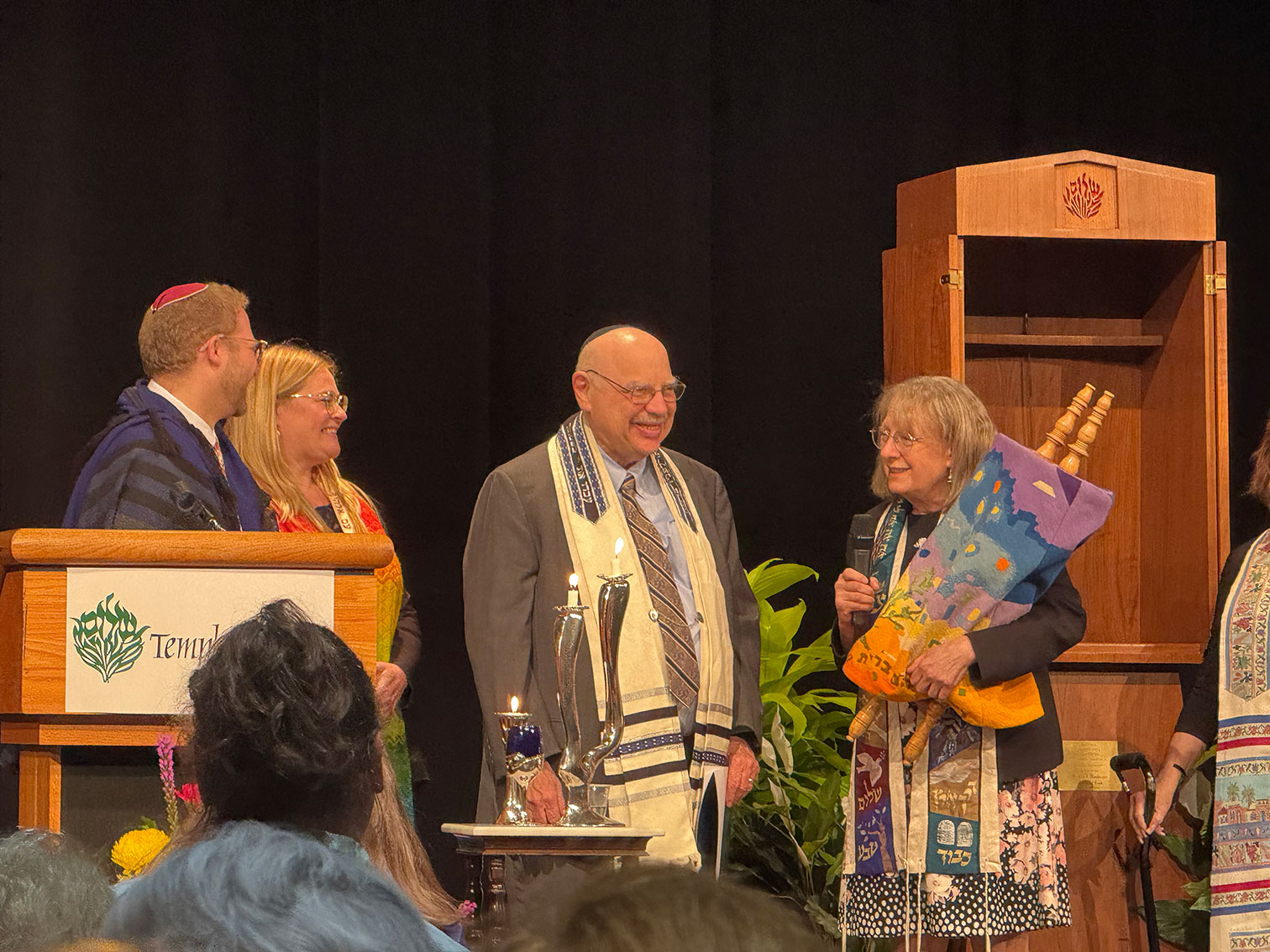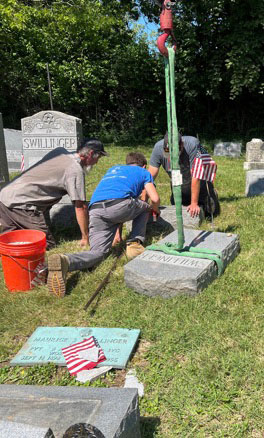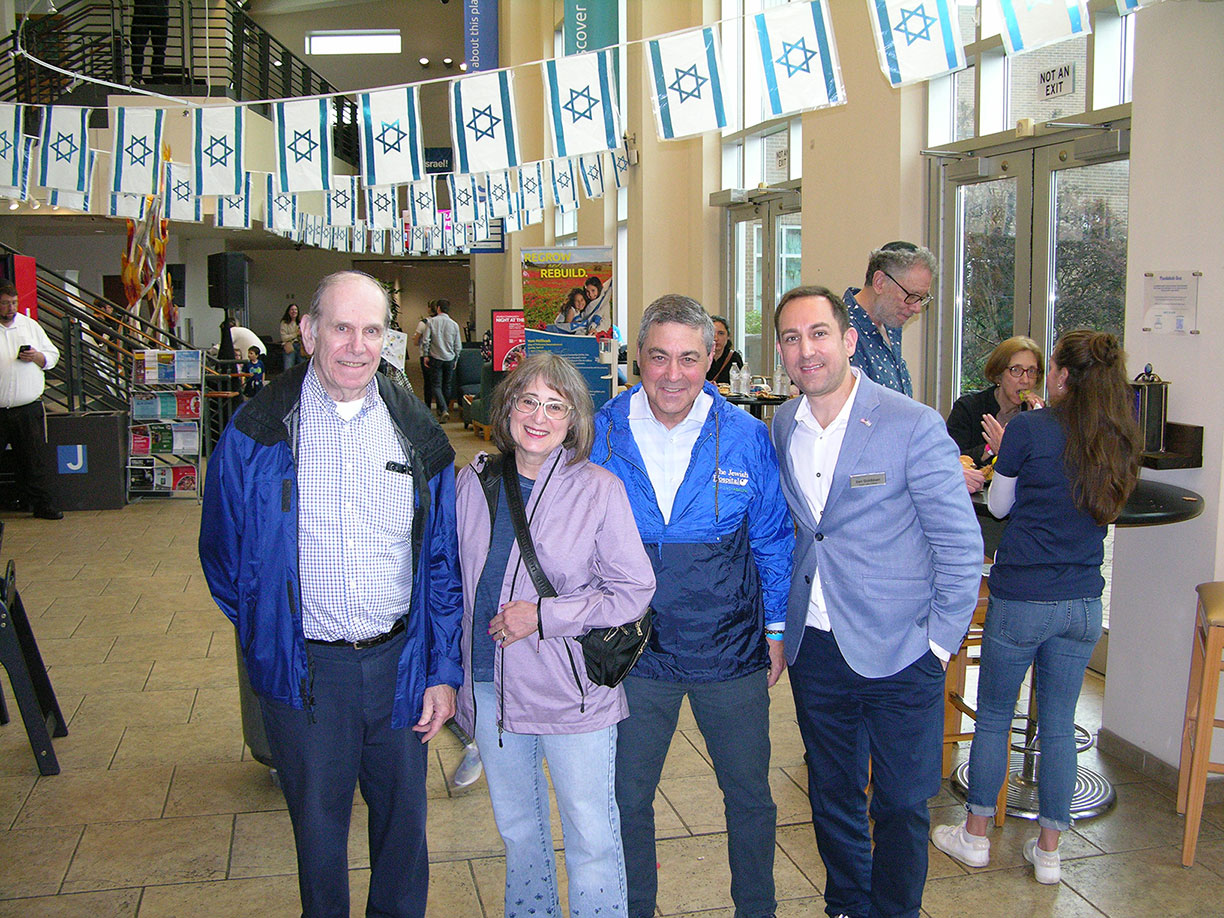By Dr. Jason Kalman and Dr. Haim Rechnitzer
Guest Columnists
On November 26, 2023, an article on the Hebrew business newssite theMarker dot com ran with the headline “the academic world is against us.” It confirmed what many of us had already been hearing from Israeli colleagues and friends. Although the formal push from BDS had not yet taken root, an informal de facto boycott of the Israeli academy was quickly taking hold in the month following the inhumane attack by Hamas on October 7 and Israel’s military response to it.
Simultaneously, Jewish colleagues on campuses across the United States and Canada were feeling isolated and attacked as pro-Palestinian support also stirred up anti-Zionism and antisemitism. The formal statements from many academic societies did nothing to mitigate this sense of alienation as moral waffling replaced clear and thoughtful condemnation of the horrors committed against Israeli civilians young and old.
But what to do? Many of us were in a bit of haze; another blog post in support of Israel or critiquing campus culture was unlikely to change anything and would likely do little to allay the sense of helplessness many of us were feeling. A call from our colleague Steven Fine at Yeshiva University (formerly of the University of Cincinnati) changed all that. “We need to go to Israel,” he said capturing what we had already been thinking. On January 1st, we went. What had begun as a grassroot effort by friends at Yeshiva University, Hebrew Union College, and the Jewish Theological Seminary to show solidarity with one another and colleagues in Israel soon grew to 21 scholars of Jewish studies from around the country and Europe who went to comfort and be comforted. It also offered the opportunity to hear from Israeli universities of the work they have done over the last few months to support the broader community and their efforts to bring students back to campus.
Most participants in the trip were Jewish; some were not. We disagreed about many things and agreed about others. Mostly we agreed on the need to work together to support loved ones, colleagues and friends in Israel and those facing antisemitism on their respective campuses at home. To that end, we met with colleagues and administrators at Achva College in Kiryat Malachi and Sapir College near Sderot. The former, which sits at the doorway to the south of Israel, was just bringing students back to campus. No small feat for a college of 3,500 students, many of whom were serving in uniform or married to spouses who were called up. Nor was it a simple task for a diverse campus where Bedouin make up 20% of the student population. Sapir College is in a darker spot, with the college president refusing to bring students back to campus until he could secure their safety from ongoing rocket fire. The large losses in the student body, the faculty, and among their families likewise caused the colleges significant heartache as they contemplated the return to campus. Similar sentiments were heard from colleagues the next day at Bar Ilan and Tel Aviv Universities, and later in the trip from friends at Hebrew University. Beyond this, there was genuine concern from Israeli academics about the awful situation faced by their American colleagues confronting antisemitism on campus. In this there was a general sense of all being in it together. In Israel, the university campuses are about to be the place where Jewish students and Arab students, Jewish faculty and Arab faculty, begin the process of reconciliation. For the universities to succeed, their respective student bodies will need to unite in ways it has not always done before. The faculties and administrations are already hard at work figuring out how to make this possible. If they can succeed while the war continues, while some students return from the front still mourning lost love ones and fallen comrades, and others mourn relatives and friends in Gaza, and all know more trauma than anyone should have to suffer, perhaps there is hope for American campuses, too. There is no doubt that the current crisis has highlighted that universities are not the places, or the sanctuaries, we might have imagined them to be. While we have worked to make them more diverse and inclusive, we have failed to integrate the student body. The pursuit of truth crosses ethnic and religious boundaries and is about the sense of shared humanity. Until that sense is restored here and abroad, the war in Gaza will continue and so too the battles on campus. Boycotting Israeli academics, particularly now, only serves to undermine serious efforts to bring communities together and hurts Israeli Arabs and Jews alike. Isolating precisely those people and institutions working to integrate a diverse society only weakens the hands of those trying to make a difference in hopeless times.
Beyond the opportunity to visit friends and colleagues at Israeli universities, together we visited Kfar Aza in the Gaza envelope where homes riddled with bullet holes, soot and char-scarred walls attest to the trauma which is also apparent on the faces of Israelis throughout the country. The pain is palpable everywhere and the whirr of helicopters carrying the wounded soldiers to hospitals in Tel Aviv is a constant reminder the losses continue. On our last day, we met with archaeologists at the Israel Antiquities Authority. They recounted the horrendous work of sifting last remains from burnt out homes attacked on October 7. Fire leaves little to find but, with military cover they did their work recovering, at the time, minute bits of evidence of the deaths of 14 people whose whereabouts or ends had been unknown thus bringing closure to some families. The horrendous stories were a reminder about shared humanity. In the midst of ongoing war, while hostages are still held, soldiers continue to fall, and civilians in Israel and Gaza face ongoing harm, a few people worked long emotionally draining hours so that loved ones could know what happened to their children, or siblings, or parents.
There was much to learn and witness on this trip. The members of our group came from across the political spectrum and the opportunity to process what we saw and heard together destabilized some views and reinforced others. What is clear is that that there is no room for black and white opinions. The situation is horrendous and complex and needs deep and nuanced thought. Too many people have suffered and continue to suffer and what happens in Israel and Gaza so clearly affects us here. Let us hope that the hostages are quickly released, Israeli soldiers return to their families, the displaced can reside safely in their homes, and no one needs to mourn another lost love one.
We are grateful to HUC, JTS, YU, the JCRC of NY, the Jewish Foundation of Cincinnati, the many rabbis of different communities, and the many friends who helped make this trip possible.





